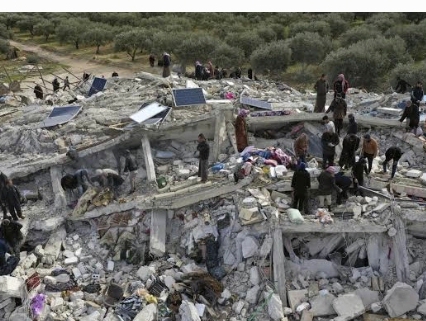Over 140 Persons Reported Dead in Myanmar Earthquake
Several fatalities have been reported as Myanmar grapples with the aftermath of a powerful earthquake that struck on Friday, causing widespread devastation.
According to the military government leader, 144 people have died, with many others injured. As the country responds to this disaster, officials are calling for urgent recovery efforts.
The powerful 7.7-magnitude earthquake struck central Myanmar and prompted the country’s military government to declare a state of emergency in six regions.
This information was provided by the United States Geological Survey (USGS).
The earthquake’s epicenter was located 16 kilometers (10 miles) northwest of Sagaing, at a depth of 10 kilometers. Tremors from the quake were felt as far as southwest China and Thailand.
Less than 15 minutes after the initial quake, a second, weaker tremor measuring 6.4 in magnitude struck the region, with its epicenter 18 kilometers (11.1 miles) south of Sagaing.
The destruction has been extensive. In Mandalay, Myanmar’s second-largest city, local rescuers described the damage as “enormous.”
Early reports indicate that the number of casualties could be “at least in the hundreds.”
In Naypyidaw, the capital, several roads have buckled due to the quake’s intensity.
The situation is similarly dire in neighbouring Thailand, where the earthquake caused an unfinished high-rise building in Bangkok to collapse, leaving at least 81 construction workers missing, according to Thailand’s deputy prime minister.
Concerns about aftershocks have heightened across the region.
Soe Lwin, a resident of Yangon, Myanmar’s largest city, noted feeling the quake strongly and said that people are anxious about potential further tremors.
In Bangkok, BBC journalist Bui Thu described her experience during the quake, saying, “I was at home cooking when the tremor hit, and I felt panicked. Buildings in Bangkok aren’t designed to withstand earthquakes, so I’m worried about substantial damage.”
Myanmar has been in political turmoil since a military junta seized power in a coup in 2021.
The government exercises tight control over the country’s media, including radio, television, print, and online outlets.
With internet access frequently restricted, gathering reliable information about the ongoing situation remains a challenge.


